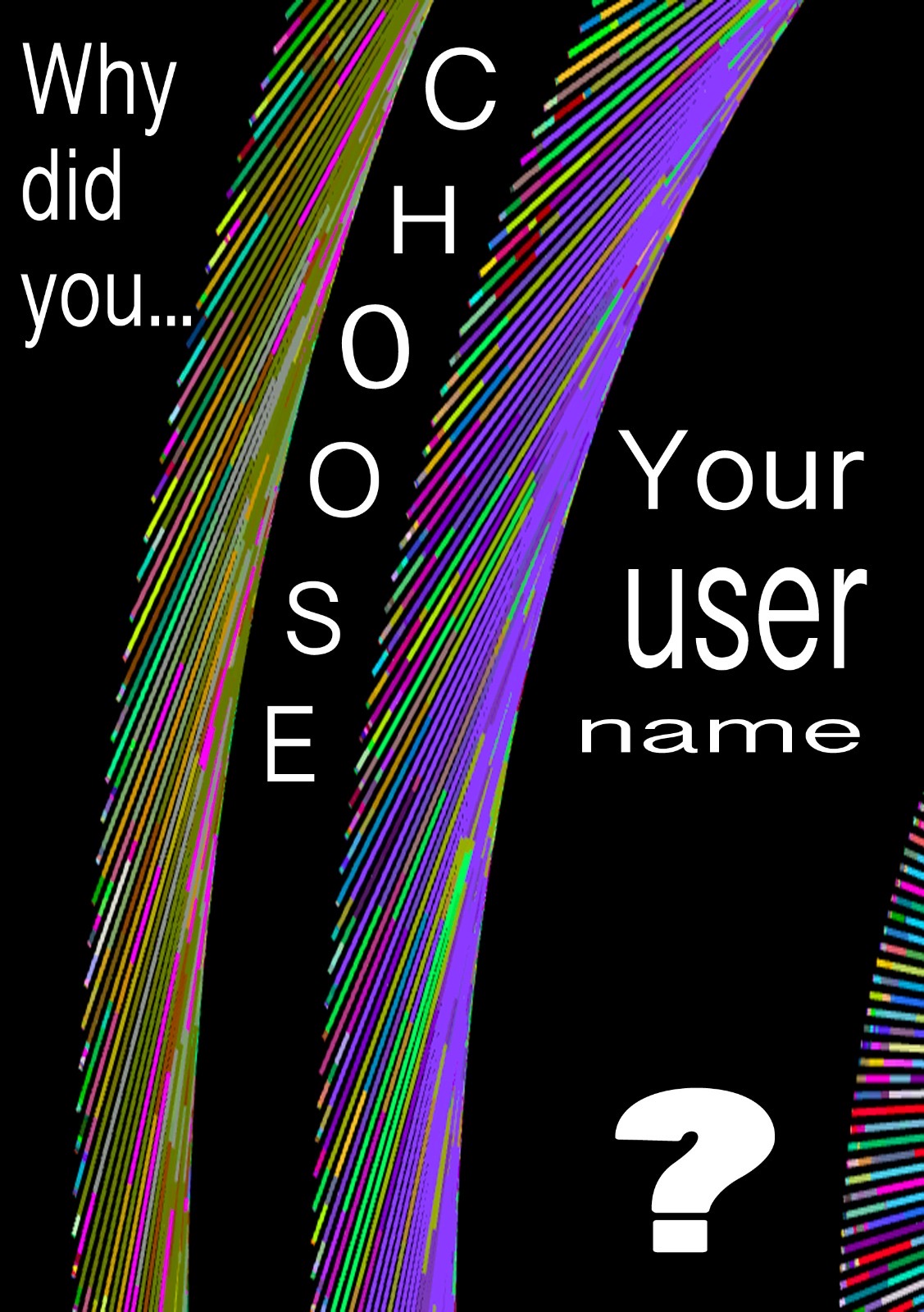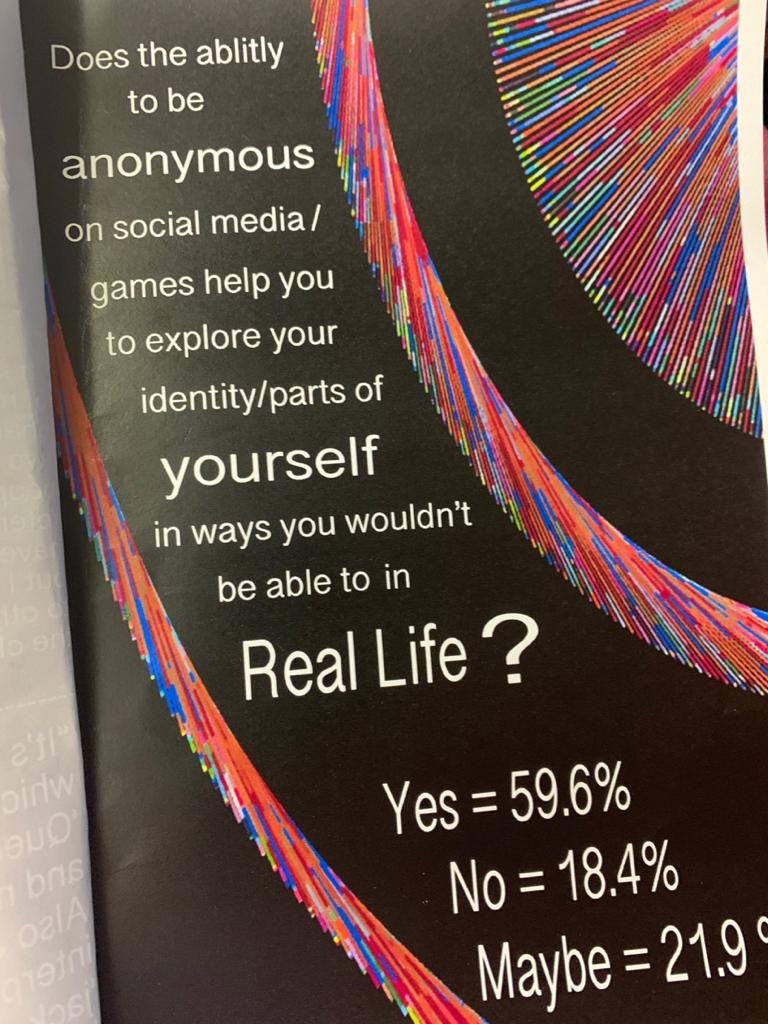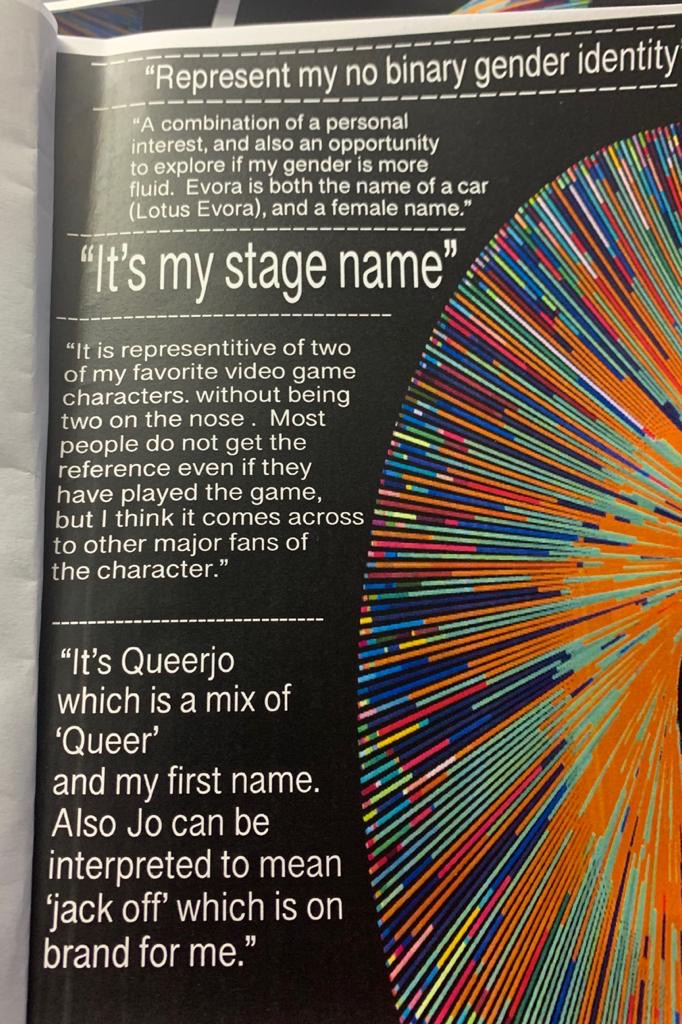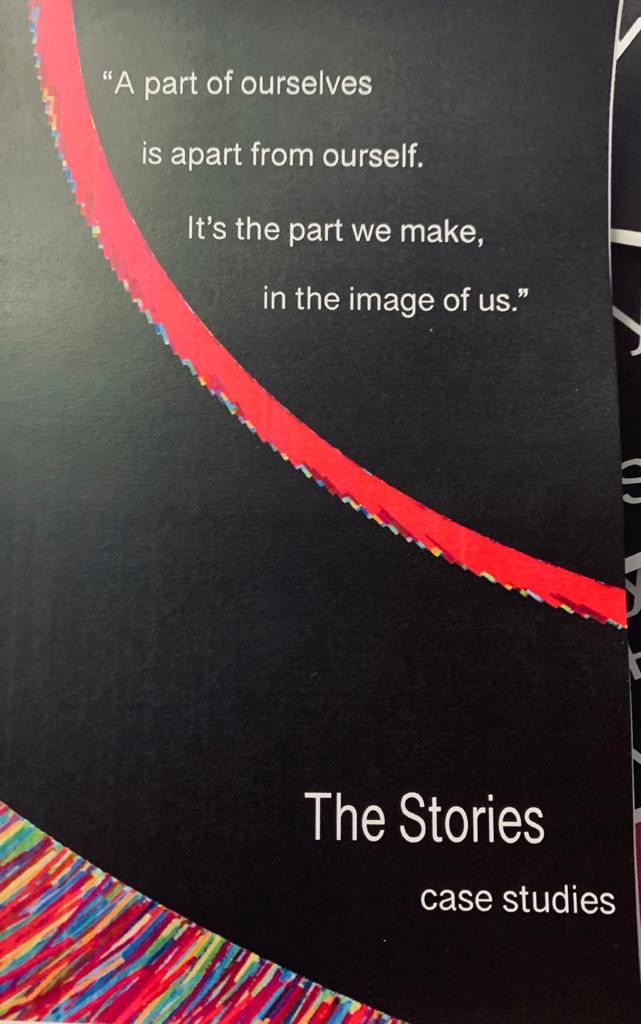avatars++anonymity
The construction of queer identities online
Keir Clyne / Kris Hillquist / Duncan Paterson
Arguably, queer people have had a strong affinity with online digital spaces since they were created. Historically “queerer bodies have [been] excluded from hetronormative spaces” (Miles, 2017) and thus have resorted to constructing their own. Normally we see that these spaces “shift from queer [public] to private [space]” (Miles, 2017), be it a private gay bar open to the public housed in a building on a public street. But to find these spaces and help form your identity as a queer person, you had to physically go to these spaces, which could be dangerous to do depending on your situation. But with the advent of social media came along Social Media and Avatars. In this project, we aim to show that the use of avatars within social media allow queer people to explore and create parts of their identity which they otherwise wouldn’t be able to.
In this project we carried out research into a range of subjects surrounding both online queerness and online social media; after many discussions about the topic we then conducted a questionnaire about the usage of avatars and anonymity in the construction of identity in which we got 118 respondents from a variety of social media. We then combined the most interesting and thought-provoking answers, as well as some of the statistics from the questionnaire, into a zine which was the medium of our artefact.
Disclaimer
For this research project we aimed to be non-judgemental, accessible and inclusive. As much the language we use, how we collected the data and the way we expressed it have all been carefully considered with this in mind.
What are we defining as Social Media?
An online digital space in which users can have meaningful social interactions through the use of an avatar (which can either represent a given or constructed identity. Some examples include traditional social media like Facebook and Twitter, online games such as Runescape and World of Warcraft, forums such as Mumsnet and Planet Hanyu and social mobile apps such as Amino and Grindr.
What are we defining as an Avatar?
An avatar is a form of username, description of identity or image which represents the online identity you are currently presenting as, whether that identity has been given or constructed
The research
During the research phase, we read many academic papers on topics ranging from online queerness to how people use and interact on social media.
In our research, we found a historic shift between queerness in public and private space which is now being reflected currently in physical and online spaces, with apps like Grindr being tied to the physical world (using location to determine who you can talk to on the app) but with users being physically in the private space of their home. We also found that avatars are helpful in the construction of identity both online and offline because when “people [...] experiment with identity, they secure anonymity and identity simultaneously” (Nic Crowe, Simon Bradford, 2006) which gives them a safe space in order to explore personal, societal and interpersonal taboos. Finally, we found that online spaces can help people form identity simply by forming and sharing their own aesthetics within their chosen social media platforms making their identity “a kind of bricolage of familiar inter-textual cultural forms” (Nic Crowe, Simon Bradford, 2006)
The Questionnaire
Of the 118 different responses here are some of the most relevant statistics:
~Respondents self-identified 44 different genders and 37 sexualities.
~52% felt their username represented who they were ‘in their real lives’
~53% felt that the ability to be anonymous online helped them explore parts of their identity they couldn't in real life
Conclusion
In conclusion, we found that around half of the respondents we interviewed found that the use of an avatar on social media - and the associated anonymity - was helpful in exploring parts of their identity. This along with our academic research found that queer users of social media are able to conduct this exploration online in a safe and inclusive space whilst allowing them to circumvent the societal pressure and queerphobia that they may find in non-virtual spaces.
Wardle, P. (2018). Avatar Sex – the Joy of the Not-Real. Journal For Virtual Worlds Research, pp. 1-14
Lehdonvirta, V., Wilska, T. and Johnson, M. (2009). VIRTUAL CONSUMERISM. Information, Communication & Society, 12(7), pp.1059-1079
Graham, L. and Gosling, S. (2012). Impressions of World of Warcraft players’ personalities based on their usernames: Interobserver consensus but no accuracy. Journal of Research in Personality, 46(5), pp.599-603
Miles, S. (2017). Sex in the digital city: location-based dating apps and queer urban life. Gender, Place & Culture, 24(11), pp.1595-1610
Crowe, N. and Bradford, S. (2006). ‘Hanging out in Runescape’: Identity, Work and Leisure in the Virtual Playground. Children's Geographies, 4(3), pp.331-346
Schleiner, A. (2001). Does Lara Croft Wear Fake Polygons? Gender and Gender-Role Subversion in Computer Adventure Games. Leonardo, 34(3), pp.221-226





































































